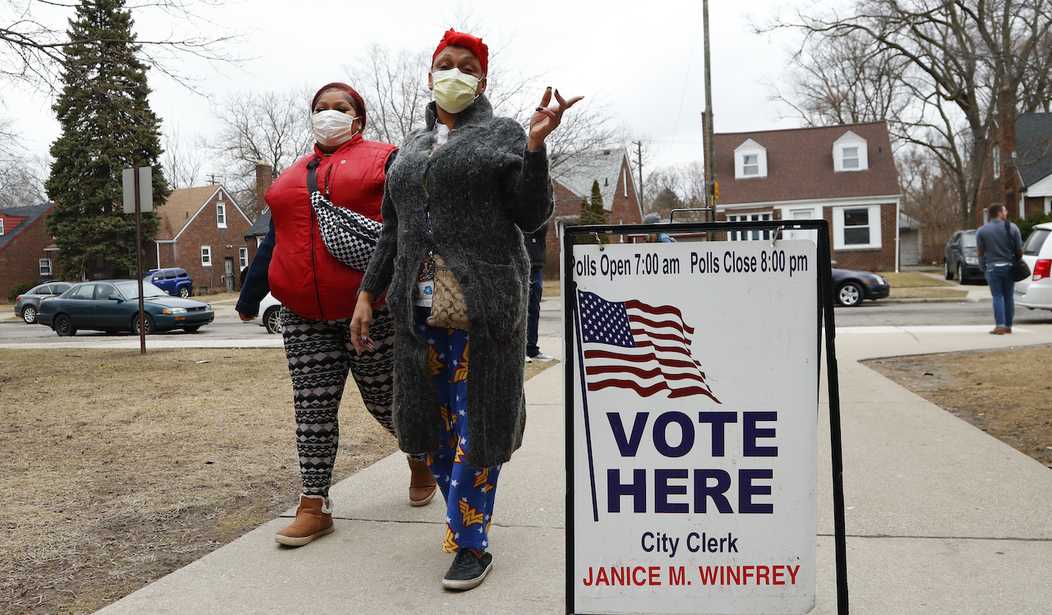As the saying goes, "Nothing is certain but death and taxes." I would add, "and anti-price gouging legislation in times of crisis." Yet price increases in the face of sudden shortages are an important impetus to restore supply and demand market conditions that are closer to normal.
As many of us have experienced in the past few weeks, buying toilet paper, hand sanitizer and face masks has become more difficult and more expensive. The reason, of course, is that unusually large numbers of people are rushing to buy these and other products that might prevent the spread of the coronavirus. It's normal for people to stock up on supplies during crises. The immediate results are empty store shelves, soon followed by higher prices.
When this happens, politicians around the globe demand an end to the price hikes. The goal is to improve consumer access to the products now in higher demand.
In New Jersey, for instance, at least 10 retailers have received warnings from the government to stop their so-called price gouging. Similarly, the French government announced that it won't tolerate such price increases and will soon decree a price ceiling on face masks and hand sanitizers. In a move guaranteed to worsen and lengthen the shortages, French officials are even going so far as to appropriate stocks of masks. Just this week, the Department of Justice threatened to act against "bad actors" who raise prices during this time of panic. The list goes on and on.
While well-intentioned, such heavy-handed intervention is a mistake on many levels:
First, the rise in prices conveys nothing more than the unusually intense surge in demand for these products. Consumers value these products more now than they did just a few weeks ago, which is reflected by the higher prices.
But here's another reality: If prices are kept artificially low, there's little incentive for shoppers not to buy as much as they can. Of course, only those shoppers lucky enough to get to the stores first can do so. Their hoarding then leaves nothing for shoppers in line behind them.
Recommended
The fact is there's no better means of slowing the rising demand -- and, especially, reducing excessive hoarding -- than allowing the very price hikes that governments are trying to prevent.
But price hikes have another important advantage: They create the necessary incentives for entrepreneurs to shift resources toward activities that increase the supply of these goods.
The higher prices encourage higher levels of production for goods like masks and hand sanitizers, which then increases supply. Even some companies that couldn't afford to produce these goods in the past will be prompted by high prices to now do so. The Japanese electronics giant Sharp started to use its TV factories to make surgical masks when the domestic supply went dry. Manufacturer FoxConn did the same in China to protect its employees who assemble iPhones.
Government officials (and pundits) never seem to learn (or remember) that in times of crisis, naturally rising prices are necessary to guarantee that goods, services and inputs are used to maximum social advantage. When governments prevent price hikes, they unwittingly create shortages of vital supplies. Unfortunately, such government intervention makes it harder for people to recover from disasters or, today, to protect themselves from the coronavirus.
Think about it. Without price fluctuations to provide a signal to manufacturers, how will they know by how much or how quickly they need to increase production? If prices are kept artificially low, factory owners have no way to know for sure that actual demand (and not just hoarding) has risen enough to justify a change in their production schedules. Second, if governments keep prices from adjusting upward, the additional demand for masks might not result in enough revenue to cover the extra costs of producing and shipping more masks.
The bottom line is that by keeping prices artificially low, governments around the world encourage artificially high demand, from hoarders, for example. Necessary increases to the supply chain will also be discouraged, which results in unnecessary shortages, long lines of desperate customers, empty shelves and black markets in dark alleys.
Aren't we better off when products are actually on the shelves and available for purchase, even if only at higher prices? When no such products are to be found, except by the politically and socially connected, ordinary citizens lose out.

























Join the conversation as a VIP Member